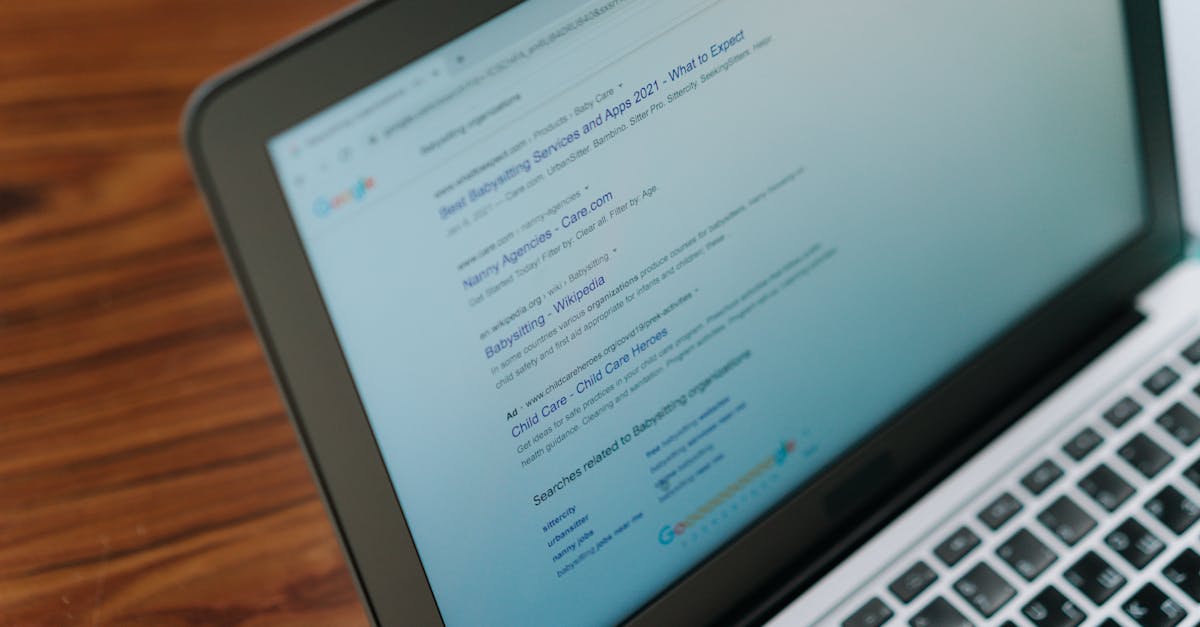
Table Of Contents
Networking in the Data Analytics Field
Networking in the data analytics field can significantly impact your journey as you seek opportunities and insights. Engaging with professionals in the data community offers a chance to learn from their experiences. Participating in local meetups, webinars, or industry conferences focused on analytics and reporting can lead to valuable connections. Online platforms such as LinkedIn also provide avenues to reach out to experienced analysts and join discussions related to the sector.
Building relationships with individuals already working in analytics can open doors to mentorship and guidance. Many seasoned professionals are keen to share their knowledge and may even offer advice on skill development or job applications. Additionally, these connections might inform you about job openings that are not widely advertised. Activities like informational interviews can be particularly useful for gaining insights into the industry while showcasing your enthusiasm for analytics and reporting.
Effective Strategies for Building Connections
Networking is crucial in the data analytics field. Begin by attending industry meetups, webinars, and workshops. These events provide opportunities to meet professionals who can offer insights and guidance. Engaging in discussions about analytics and reporting can help you establish connections with individuals who share your interests. Social media platforms, especially LinkedIn, can serve as valuable tools for making new connections. Sharing and commenting on relevant content can increase your visibility and demonstrate your passion for the field.
Another effective strategy is to join online forums and groups focused on data analytics. Participating in discussions or asking questions can attract the attention of experienced analysts and potential employers. Consider volunteering for projects that involve analytics and reporting, as this can expand your network while also allowing you to gain practical experience. Collaborating with others in these environments fosters relationships that may lead to job opportunities down the line.
Building a Portfolio to Showcase Skills
Creating a robust portfolio is essential for aspiring data analysts, particularly if starting out with no professional experience. Showcase a mix of projects that highlight your skills in data analysis, visualisation, and reporting. Include examples of work that demonstrate your ability to derive insights from raw data. Focus on projects that used relevant tools and techniques, such as Excel, SQL, or Python, to solve real-world problems. This not only showcases your analytical skills but also your capability to present findings clearly and effectively.
Consider incorporating case studies that highlight your process and thought behind each project. Document the steps taken, from initial data collection to final visualisation, and the insights derived from your analysis. Potential employers value a portfolio that provides a comprehensive overview of your analytical mindset and problem-solving abilities. By including a variety of projects, specifically those that emphasise Analytics and Reporting, you can make a strong impression and increase your chances of career advancement in the data analytics field.
Projects and Case Studies to Include
When building a portfolio as an aspiring data analyst, consider including diverse projects that showcase your ability to work with data. Projects that involve real-world datasets demonstrate practical skills. A good starting point can be undertaking analyses of publicly available datasets, which can illustrate your knowledge in data cleaning, visualisation, and interpretation. Incorporating case studies where you have solved specific problems or provided insights will strengthen your profile. Make sure to highlight the methodologies you utilised and the outcomes achieved.
Additionally, presentations should be clear and insightful, focusing on the implications of your findings. Incorporating elements of Analytics and Reporting in your portfolio can further enhance its appeal. Effective storytelling through data insights helps potential employers understand your analytical thought process. If you can articulate how your analyses have impacted decision-making or contributed to projects, your portfolio will stand out even more to recruiters looking for practical experience.
Preparing for Job Applications
When preparing for job applications as a data analyst, it's essential to focus on your resume and cover letter. Highlight your skills in analytics and reporting, as these are critical to the role. Tailor your resume to showcase any relevant coursework, personal projects, or freelance work related to data analysis. Use clear, action-oriented language to describe your achievements. Including specific tools or software you are proficient in can further strengthen your application, such as Excel, SQL, or data visualisation platforms.
Your cover letter should complement your resume by elaborating on your passion for analytics and reporting. Discuss what draws you to the field and how you have cultivated your skills. Consider mentioning any relevant online courses or certifications you have completed. Customising your cover letter for each application is vital. This approach demonstrates your genuine interest in the role and helps you stand out to potential employers looking for candidates who are eager to learn and contribute.
Crafting an Effective Resume and Cover Letter
When crafting a resume for a data analyst position, focus on highlighting your analytical skills and any relevant coursework or practical projects. Emphasise your proficiency with tools commonly used in analytics and reporting, such as Excel, SQL, or Tableau. Even if you lack direct experience, showcasing your technical skills can make a strong impression. Tailor your resume to each job application by incorporating keywords from the job description to demonstrate alignment with the employer’s needs.
A cover letter is an opportunity to elaborate on your passion for data analysis and your motivation to enter the field. Share specific examples of projects or experiences where you applied analytical thinking to solve a problem. This could include university projects, volunteer work, or self-initiated studies. Highlight your eagerness to learn and develop skills in analytics and reporting, which will resonate with potential employers looking for candidates who are proactive and committed to growth.
FAQS
What qualifications do I need to become a data analyst with no experience?
While formal qualifications can be beneficial, they are not mandatory. A degree in fields like mathematics, statistics, computer science, or data science can help. Additionally, online courses and certifications in data analytics tools and methodologies can be valuable.
How important is networking for landing a data analyst job?
Networking is crucial in the data analytics field. Building connections can lead to job opportunities, mentorships, and insights into the industry. Engaging with professionals through networking events, online forums, and social media platforms like LinkedIn can be highly beneficial.
What kind of projects should I include in my portfolio?
Your portfolio should showcase a variety of projects that demonstrate your data analysis skills. This can include case studies, personal projects, or contributions to open-source projects. Focus on projects that highlight your ability to clean data, perform analysis, and visualise findings effectively.
How can I create an effective resume and cover letter for a data analyst role?
Tailor your resume and cover letter to highlight relevant skills and projects. Emphasise analytical skills, software proficiency, and any coursework or certifications. Use clear, concise language and quantify your achievements when possible to make your application stand out.
Are there any specific tools and software I should learn as an aspiring data analyst?
Yes, familiarity with tools such as Excel, SQL, Python, R, and data visualisation software like Tableau or Power BI can be very helpful. Learning these tools will enhance your ability to analyse data and present your findings effectively.

















































